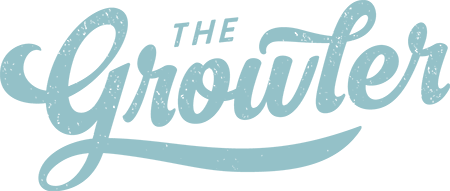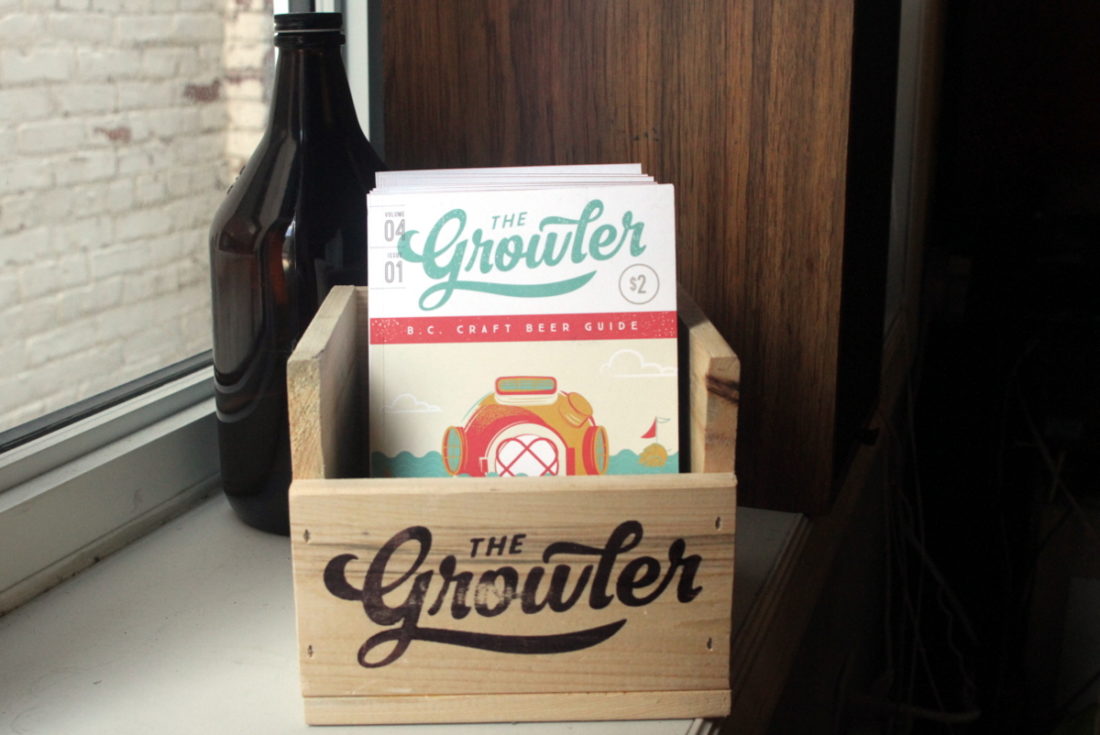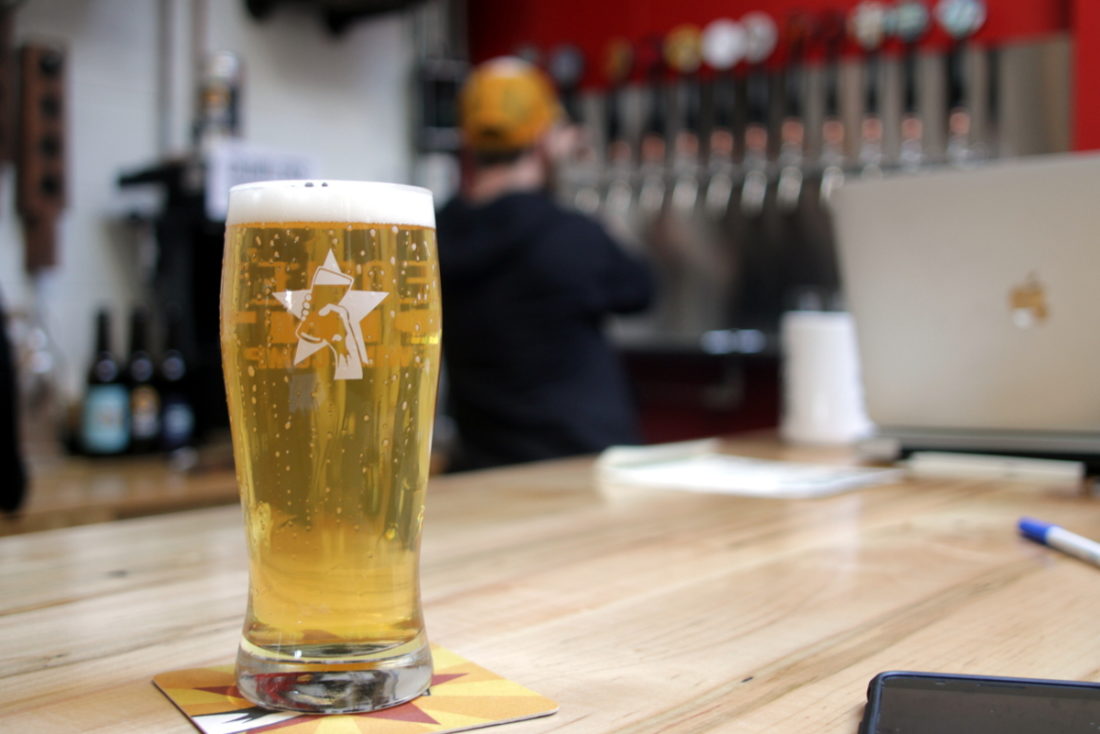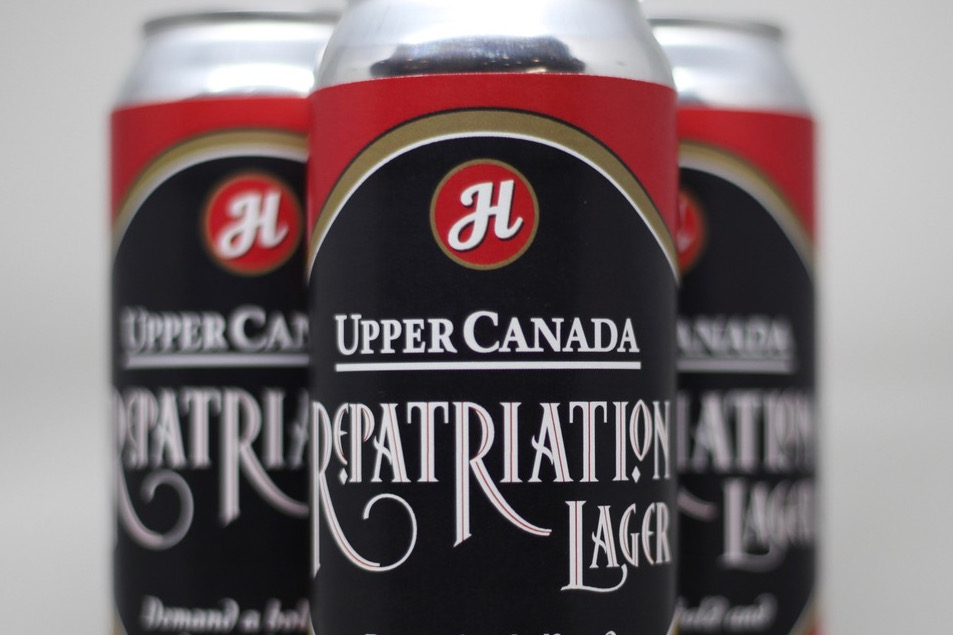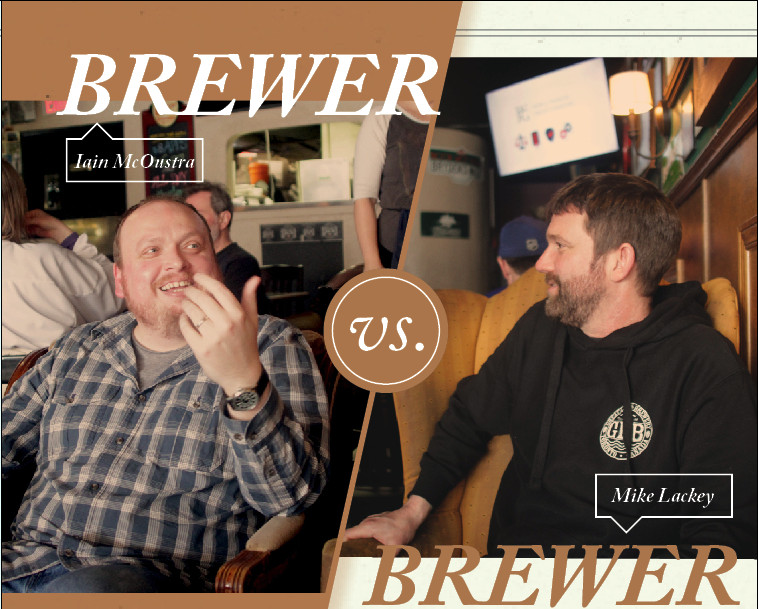
If you’re at least a little bit committed to craft beer in Ontario, especially the southern part of the province, you’ve had a beer made by Amsterdam or Great Lakes. From Canuck and Boneshaker to Karma Citra and Double Tempest, these are foundational beers. Now, if you’re really lucky, your Untappd list includes a beer made by both breweries—Life Sentence, Ezra or Maverick & Gose to name three.
Amsterdam was founded in 1986, Great Lakes a year later in 1987. Both have grown remarkably over that combined 60 years of making beer, but also have maintained a reputation for consistent quality. Undoubtedly, that has a lot to do with the creative heads of the respective brewing teams—Iain McOustra at Amsterdam and Mike Lackey at Great Lakes.
Lackey and McOustra are friends and both fit the same humble, soft-spoken, “I’d rather my beer speak for me” model. But with experience and a devotion to improvement comes a deep well of opinions on the craft beer situation in Ontario, circa 2018.
The three of us gathered at Bryden’s, a casual sports bar in Toronto’s Bloor West neighbourhood, for a few hometown pints and a discussion of the current state of their industry.
Growler: When’s the last time you guys made a beer together? I know you’ve done a few collabs.
McOustra: It’s been a while.
Lackey: Ezra we did about a year ago.
McOustra: Yup, that was fun.
Growler: Are collaboration brews worthwhile? What do you guys get out of it?
McOustra: Oh, you gotta go first, brother.
Lackey: Well, for sure. At the start, when I first met Iain, it was about trying to find like-minded people in the industry as we were trying to do some different things. I think we met at Volo the first time and just started talking. We realised we had some of the same ideas and goals. Collaboration, pretty early on, was about getting to make a beer together.
Growler: What did you get out of the process?
McOustra: I certainly learned a lot more from some of the collaborations I’ve done, particularly with Lackey. Also from one I did with Matt Tweedy. I’ve learned more through that than some of the formal brewing education I’ve done. It’s a matter of talking ideas through; understanding flavour impact a bit more; really taking risks with that person on styles we haven’t brewed before.
I’ve kind of moved away from doing collaborations recently because there is so much of that out there. And there doesn’t seem like there’s the same impact.
When we did our first one it was a rauch saison.
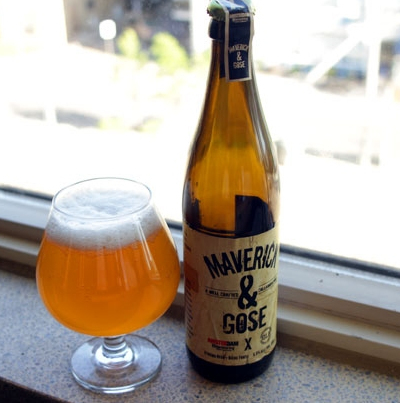
Lackey: Maverick and Gose was the one I was thinking of. For me, I didn’t know what a gose was. I don’t think many people in Ontario did.
McOustra: And a barrel aged one at that.
Lackey: For Iain, I think it might have been hard to say to the bosses “hey, I’m going to make a gose” at that point.
McOustra: Oh, for sure.
Lackey: But it’s a collab so we’re going to do crazy stuff no one’s heard of. And it’s a collab with this idiot down at Great Lakes and put the blame on it being a fun thing.
McOustra: Back in the day, you were taking risks. You were also learning from that person. Almost always back then, for a collaboration, you were doing a style you wouldn’t normally do. Something that was new.
We’ve done a bunch. Niambic, obviously. That was one of our first ones. I think collabs have been incredibly important for me in my brewing career.
Growler: What’s the status on Niambic.
McOustra: Mike…
Lackey: We had some trouble with a couple of the barrels for the original one.
Growler: It was you guys and Indie and Sawdust?
Lackey: Right. So, we moved it to Indie Ale House. They’ve been doing it for the last couple years. I think getting pretty close to a blend of a few different years. And I think every year has been progressively better as we’ve learned what to do.
McOustra: We were really close to doing a release a couple years ago and looking back I’m really glad we didn’t. You know, it was a learning process for all of us. And I think that the most recent ones are really the good ones.
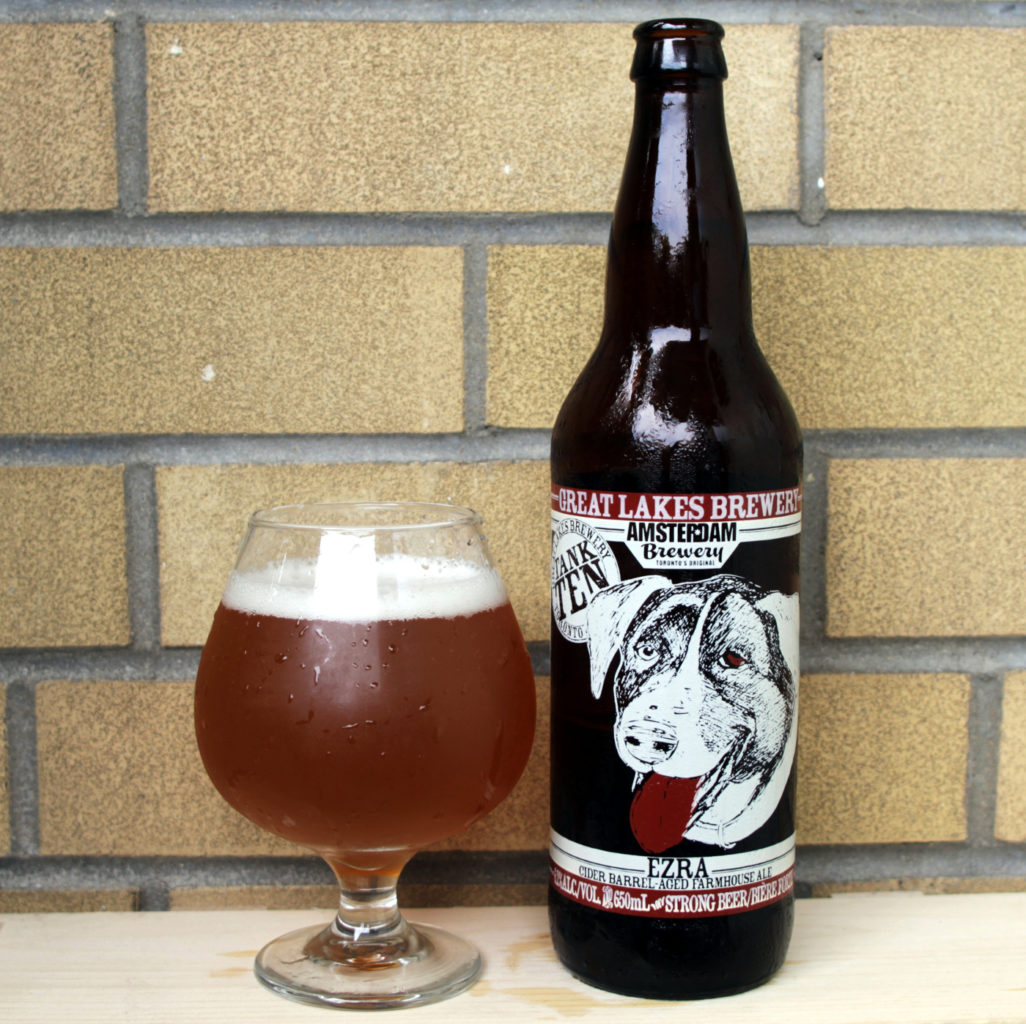
Growler: Speaking of new styles and experimenting, both your breweries have a wide range of beers on the market. But they’re not the beers you had out ten years ago. If you were opening a brewery now, would you jump in with the beers you have now or would you start again with the original beers and grow into the Boneshaker and the Octopus Wants to Fight?
McOustra: If I was going to open up a brewery right now? I would go opposite to market trends. I would go pilsner, porter, probably an IPA and a light saison.
I wouldn’t do flavours. I wouldn’t do lactose. I wouldn’t do anything over the top. Solid, solid beers that really stand out.
Lackey: I’m similar. Keep it simple. I certainly don’t think Great Lakes would do it again the way we did it. That was kinda the only way we knew. Just the mainstream lagers. There wasn’t much info out there, certainly in Ontario.
Growler: Flipside of that: What beer that you don’t make any more, would you like to revive?
Lackey: We made Black Jack, which was pretty nice. It was a schwarzbier (a black lager) and it actually won a World Beer Cup medal. I don’t even know how we entered it. It was a little ahead of its time. There were no sales (for a black lager) in Ontario at that time. But it was a nice beer.
It’d certainly be something I’d look at making if we were to start again. Really admire what Luc’s doing at Godspeed. He came out and the market’s really pressuring for crazy sour beers. He’s going to kick it out of the park. And he just made a Dortmunder, which just wasn’t around. He’s just doing simple styles really well. I think people are actually realising how good the beer is down there.
Growler: Iain, do you find having a food programme at Queen’s Quay benefits the beer-making process? Is it a symbiotic relationship?
McOustra: We do some brews with them every year. They’re a good chance for spreading beer education across the brewpub. As soon as you have people buying in – whether it’s the chefs or the managers or the servers, it’s nothing but a good thing for the brewery.
Where we’ve really benefited is their smoker. We’ve kind of gone crazy with the smoker for a few brews and we’ve had a lot of fun with some different ingredients.
Growler: Let’s talk about package format. Amsterdam, you guys have a big can—equally, small cans are a big rage. Does it matter to the beer? Is there a format you prefer?
McOustra: As long as your dissolved oxygen levels are low, it doesn’t matter. Clean beer goes in with low dissolved oxygen that’s the beer we want our customers to be drinking.
Lackey: With growlers and especially crowlers I’d be worried about the dissolved oxygen.
Growler: You both run mature, big breweries (for craft). What kind of advantage does that give you for lab testing?
Lackey: They have a more extensive lab than we do.
McOustra: We are truly lucky to be in the position we’re in because our brewing team doesn’t have to worry about packaging, or delivery, or accounts receivable. All we have to do is try to make our beer better every single day. Really focussing on that. As opposed to, when we started, we were helping with deliveries. You were walking kegs out to the fridge. You were doing everything you could to help your brewery grow. Now, it truly has given us a chance to focus and that’s all we have to do—try to make our beer better every day.
Lackey: For the lab, the DO meter really is the biggest thing to me. Getting to do a full audit and figure out where you’re picking up oxygen. And why your beer’s not tasting as good as it should, six weeks down the road. You try to keep your beer as fresh as possible, but if you’re expanding across the province, it’s going to get a little older. It should be good for three months.
Growler: I’ve had a thousand conversations with brewery people about the specific challenges of selling beer in Ontario’s various channels. Grocery stores—have they made a difference?
Lackey: I think it’s a good thing that more places can sell beer, but without paying too much attention to the numbers, I haven’t seen it make a huge impact. I think it’s less than we had anticipated. We planned for as big as it could be and I don’t think it’s been that big. Certainly, the step towards opening it up is a good step.
Growler: Have you guys bought beer at a grocery store?
McOustra: I haven’t.
Lackey: I haven’t either.
McOustra: I think it’s a step forward, right? Anything that’s a step forward is a good thing.
Growler: What’s the one thing that the Ontario government could change that would make a big difference for Ontario breweries?
Lackey: Sell each other’s beer is the one thing I was going to say. Our retail store should be able to sell their beer. I don’t see why that law exists. Other than opening your own stores.
McOustra: That’s a big one, but also taxes. They are crushing. Once you hit our size, it’s taxes. There’s been some good work on that this week. That was due to a lot of hard work by the owners of both of our breweries as well as Cam [Heaps from Steam Whistle] and a few other people who worked on it for years.
Growler: So, the changes are important?
McOustra: I believe they’re very important.
Lackey: Would it be important to you, Iain, to have a retail store in more than one brewpub?
McOustra: Absolutely.
Lackey: That’s another thing. You can only have two retail stores. And if you were to have four brewpubs you’d have to pick two where you could have retail stores. That seems like a simple law. Just make it five. Or I’m not really sure why there’s a limit at all.
McOustra: I’d like to see the government offer tax protection to bricks-and-mortar breweries as opposed to contract breweries. I think that’s truly something that’s becoming an issue. In a regulated province like ours, there’s only so much shelf space and contract brewers are treated the same way as bricks-and-mortar breweries and that doesn’t work. And if we’re being taxed the same way and processed the same way, I think that breweries like ours who have been open over thirty years, don’t see the benefits that, I feel, we deserve. We’ve got over 100 jobs at our main facility and over 240 between our two brewpubs. That is not inconsequential as opposed to someone coming and saying “I want this recipe made.”
I really think that if the OCB and government really do a bit more to support bricks-and-mortar breweries, while perhaps taxing the contract brewers the way they would an import, it would benefit all of us.
Growler: What beer styles are you excited to make this summer?
Lackey: I’m looking forward to saisons. We only make them in the summer. When the temperature rises. We put it into tanks without glycol temperature control so we have to wait and I miss them. Low-alcohol saison, easy-drinking.
Growler: Which ones in particular?
Lackey: We make one with the homebrew club, Simple Life, it’s like a 3% saison.
McOustra: It’s incredible.
Growler: And you’ve good a new beer out, Iain?
McOustra: AK 1870 bitter. We went old school with that. Worked with beer historian [Gary Gilman] and our hops supplier and were able to find hops from the right time period and region. It’s really exciting. It worked. It tastes great.
For me, very similar. Saison for sure and pilsner too. I challenged the brewing team in the fall. We identified five styles that we really want to focus on that we can elevate through micro-improvements and working in teams. And saison’s is one, pilsner’s one.
I’m really interested in using leaf hops right now. I’m really focused on that. There’s a different texture that get, different mouthfeel, softer bitterness that I think is really rewarding as a drinker.
We were able to convert a bunch of our hop contracts to leaf hops, so I’m really excited to be offering more leaf-hop beers this summer.
Growler: We talked, a few years ago, about how difficult it can be to get the hops you want. Is it different now?
McOustra: Oh man, that was then. You can get any type of hops you want, at any point. The issue now is: What’s the quality?
Everyone started putting in new fields, new plantings. And they started really pushing in Idaho and Oregon. And the thing is if you’re not there for selection – and Lackey and I have gone together for selection for several years now – picking your hops from a table, you’re not defining what type of hops you want.
It’s no longer just about varietal. It’s “okay, I like Centennial from CLS Farms because I know Eric is one of the best farmers and I know his Centennial every year is perfect.” But if I’m not at that table, shaking his hand, going to Sports Center afterward, watching him do karaoke, then I’m not.
Lackey: Watching karaoke? You’re up there, man. He’s amazing.
McOustra: If I’m not there, then I could be getting Centennial from anyone. But you can get any hops out there from a variety standpoint. The quality is just relationships. That’s a really cool thing. For me as a brewer, that was a big growth for me. Going there, meeting the farmers and learning for five or six years. It’s something I want to do every single year.
Lackey: I’ll be there, even if just for a night or two. To go to Sports Center and do as much selection as you can. It is about where it’s from, but also when it’s harvested. They’ve expanded the number of fields with hops, but the harvesters haven’t grown as quickly so they can’t pick in two or three days—it’s two or three weeks. Your Chinook that’s harvested in September is much different than the first week of October (“bush weed” we call it) and it really should be thought of as two different hops. And then you’ve got Oregon versus somewhere else.
People are all like “oh yeah, I got all this Chinook or Citra” and the varietal characteristics change so much depending on where it’s grown or when it’s picked.
Growler: You guys put all this effort into that selection—going and making sure the quality’s there. Lots of breweries do a decent job of telling drinkers what varieties of hops are in the beer. Is there some way you guys are thinking about being more explicit about the effort you put into hop selection?
McOustra: We talked about it and we brew a beer every year, for the past three, called Life Sentence. I use leaf hops from a bale for that one. I thought it was a great concept—we would be in Yakima and we were very fortunate to have hooked up with a supplier where we toured multiple farms. The one year we did 15 farms, and I’m ridiculously fortunate to be able to do that, meet all the farmers in different areas of the valley and understand the different types of issues they’ve dealt with, whether it’s voles or weather or water rights or whatever. And the idea was that we would pick a hop while we were doing that; not just a farm, or a variety, but a bale, that’s our bale and we brew one beer with that bale.
Moxee, dude, talk about Moxee. That’s the coolest thing ever.
Lackey: We have a beer Meanwhile down in Moxee… made with hops from Eric’s farm near an amazing small town, Moxee, outside of Yakima. And it just struck me right away. It’s a throwback. Nothing’s changed since 1902 probably. They haven’t done anything, all of the signs are the same, the people are the same. And our tour was delayed for two hours so we just stood on the street with these great guys, these British guys; Iain and I are standing there and just looking at each other, going “what are we doing?” But it was incredible. People driving by with their dogs in the back of their pickup trucks.
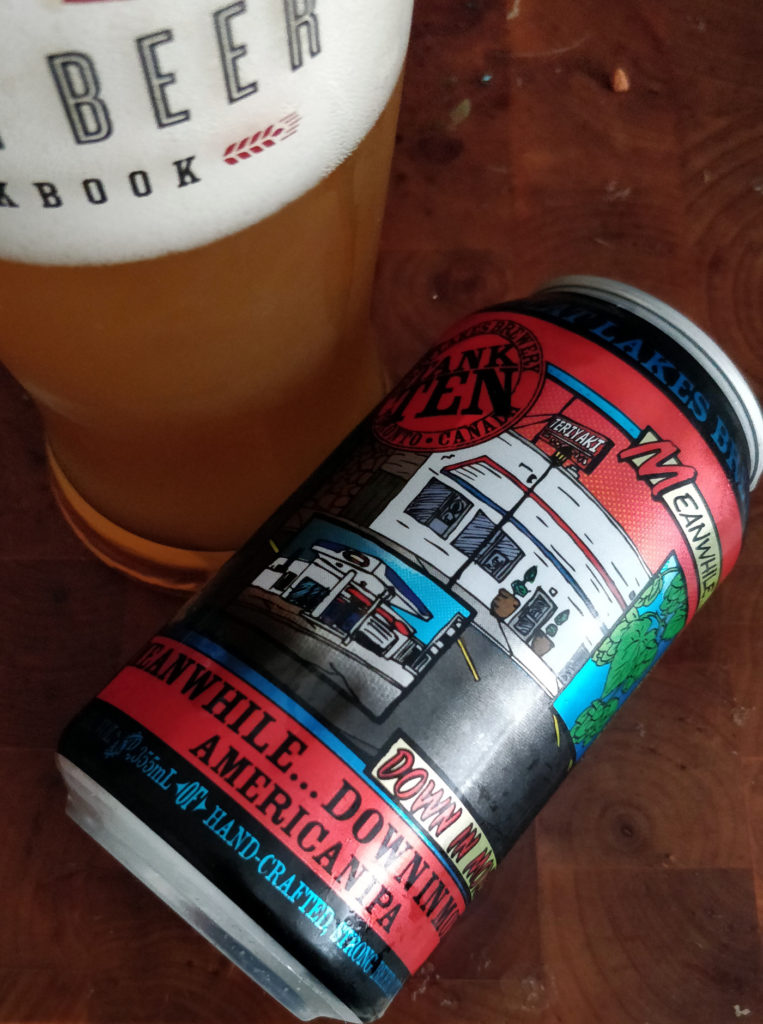
It struck me as awesome, so we made a beer after it. Eldorado is the hop that Eric grows in Moxee, so we used that hop. And he happened to be harvesting it that day and the whole harvesting plant smelled incredible.
[Ed – since doing this interview, I’ve tried Moxee and the beer is even better than the story. It’s in the LCBO in four-packs of short cans.]
Growler: Ontario-grown hops? Are they getting there?
McOustra: It’s a fair question, it’s just a tough question. Here’s the thing: There’s a real value to Ontario-grown hops. Absolutely. The Yakima hop situation, the industry slow-down in the US, means we can get hops that are grown in an ideal situation.
Lackey: Beyond ideal. It’s cheating in Yakima. Yakima is a desert. It’s sunny every day, they have no rain, but they have the runoff from the glaciers that they irrigate with. So, it’s sunny and rainy every day. It’s perfect.
McOustra: On top of that, they’ve been growing these hops for decades and they’ve got the processing facilities which is huge. Every time we go to Yakima, you hear these farmers talking about their new kilns, their new fans, millions of dollars are going into it. We’re going to be able to get those hops for cheaper than Ontario hops. It’s tough. We want to support local and we do buy some Ontario hops, but some of the flavours, the aromas that we’re getting from Yakima are at a different level.
[Ed – at this point, Lackey did a remarkably good job of negotiating a nonic pint of Godspeed’s aforementioned Dortmunder.]
McOustra: It’s a really interesting situation where you want to support local. Ultimately, you want to get the best quality ingredients. But that’s also why we insist on getting the best Canadian pale two-row malt.
Lackey: I would agree with everything Iain said. We have a good relationship with VQH Farms. It was a fun project to start and he’s a beer guy and they’re traditional farmers. They planted a couple acres and now they’re up to 20 or so acres. I’ve been up there a few times and talked to Jared a lot. They’re working really hard on their quality.
Growler: What kind of hops are they growing?
Lackey: They have Chinook, Mt. Hood, Centennial and Cascade. And they’re figuring some stuff out; which ones grow best in Ontario, and which ones don’t, how to get more pungency. Every time I see them, they’ve figured more of it. It takes some time, from year to year, for the farmer and hops are three years before they’re optimal.
It’s been great working with them, we’ve done a few beers with them, they’re getting. Their dedication and understanding — they love drinking beer — is remarkable. I’m sure a lot of the hop farmers, do but they’ve really dedicated themselves to both sides—having the beer and saying “oh yeah, that really does make a difference, these hops can be better.” And going back the next year and putting more nitrogen in at the right time and more water.
